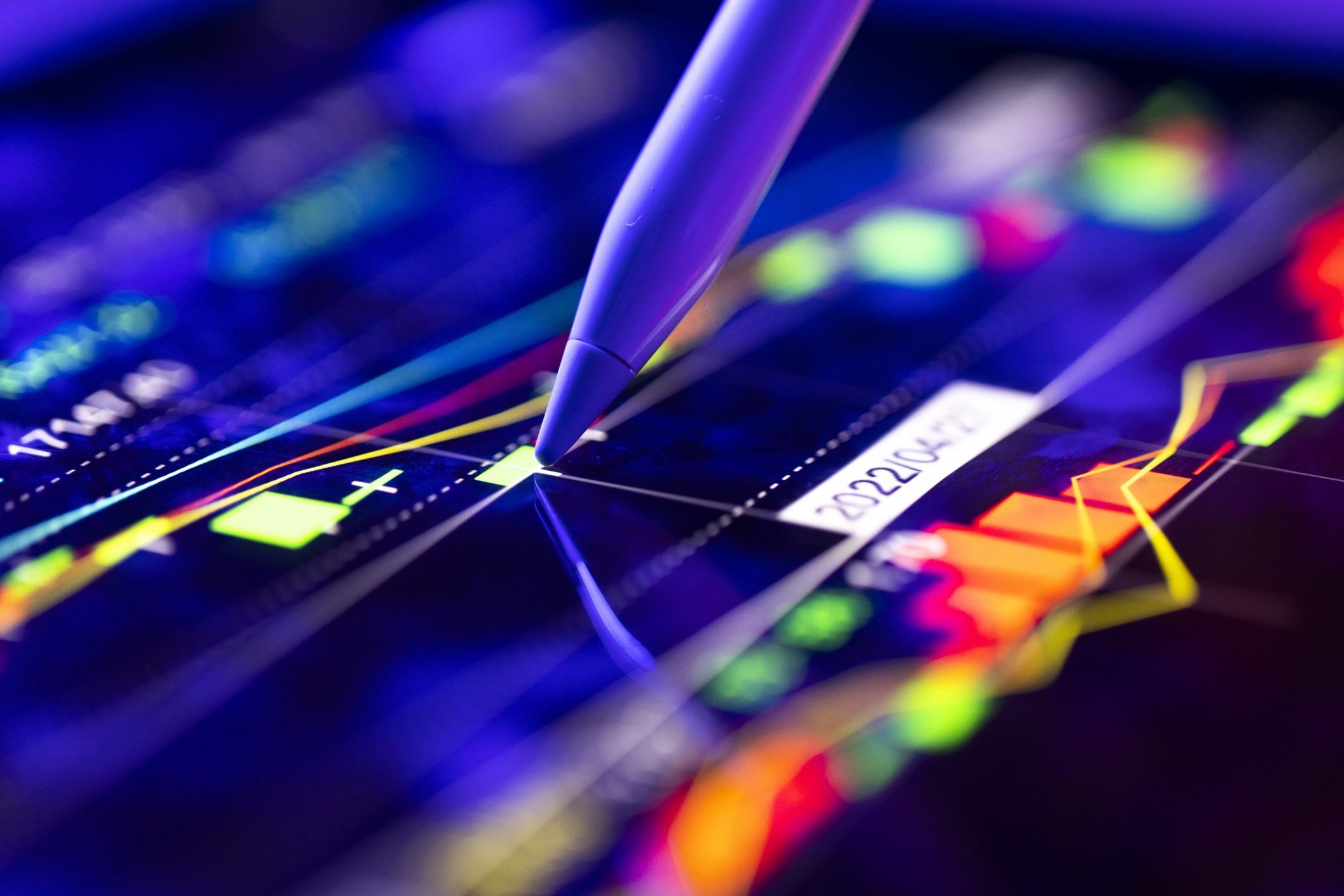What I Bought When Stocks Tanked
Our "Practical Investing" columnist happily seized the moment to buy two stocks that had been on her wish list for a long time: Costco and Boeing.

Profit and prosper with the best of Kiplinger's advice on investing, taxes, retirement, personal finance and much more. Delivered daily. Enter your email in the box and click Sign Me Up.
You are now subscribed
Your newsletter sign-up was successful
Want to add more newsletters?

Delivered daily
Kiplinger Today
Profit and prosper with the best of Kiplinger's advice on investing, taxes, retirement, personal finance and much more delivered daily. Smart money moves start here.

Sent five days a week
Kiplinger A Step Ahead
Get practical help to make better financial decisions in your everyday life, from spending to savings on top deals.

Delivered daily
Kiplinger Closing Bell
Get today's biggest financial and investing headlines delivered to your inbox every day the U.S. stock market is open.

Sent twice a week
Kiplinger Adviser Intel
Financial pros across the country share best practices and fresh tactics to preserve and grow your wealth.

Delivered weekly
Kiplinger Tax Tips
Trim your federal and state tax bills with practical tax-planning and tax-cutting strategies.

Sent twice a week
Kiplinger Retirement Tips
Your twice-a-week guide to planning and enjoying a financially secure and richly rewarding retirement

Sent bimonthly.
Kiplinger Adviser Angle
Insights for advisers, wealth managers and other financial professionals.

Sent twice a week
Kiplinger Investing Weekly
Your twice-a-week roundup of promising stocks, funds, companies and industries you should consider, ones you should avoid, and why.

Sent weekly for six weeks
Kiplinger Invest for Retirement
Your step-by-step six-part series on how to invest for retirement, from devising a successful strategy to exactly which investments to choose.
As those who have followed this column for a while know, I become nervous during stock market rallies and practically gleeful during market corrections. So when the market dropped by 7.8% over a one-week stretch in early February (which happened to contain my birthday), I considered it a gift.
Why? I was holding more than $26,000 in cash in the Practical Investing portfolio that I wanted to deploy. I'd built up this cash cushion over the past year, believing that the bull market was long in the tooth. But when I had a chance to digest the tax law passed in December, I changed my mind. I believe the law is likely to help both the economy and corporate earnings enough to fuel further stock market gains.
The problem was that Wall Street agreed with me a little too vigorously. Following the law's passage, stock prices zoomed forward at a breakneck pace. I wasn't about to join in the feeding frenzy. Optimism is reasonable, in my humble opinion, but exuberance is not.
From just $107.88 $24.99 for Kiplinger Personal Finance
Become a smarter, better informed investor. Subscribe from just $107.88 $24.99, plus get up to 4 Special Issues

Sign up for Kiplinger’s Free Newsletters
Profit and prosper with the best of expert advice on investing, taxes, retirement, personal finance and more - straight to your e-mail.
Profit and prosper with the best of expert advice - straight to your e-mail.
Let's back up a step to explain why the tax law improved the market's prospects—but not enough to sustain Wall Street's irrational exuberance. As you probably already know, the law made a number of sweeping changes to both individual and corporate taxes. On the individual side, it raised the standard deduction and cut tax rates across the board, but it also eliminated personal exemptions and pared back a number of deductions.
Although much has been made of the people who will lose these deductions, the net effect is that 90% of Americans will get a tax cut. The Tax Policy Center, a Washington, D.C., think tank, estimates that the average middle-income family will pay $900 less. That gives the average family about $75 more each month in spending power.
But U.S. corporations were the biggest winners. Top federal corporate rates dropped from about 35% to 21%—a massive savings. Hundreds of corporations have promised to pass on a portion of their savings to workers in the form of bonuses and higher starting wages. The Tax Foundation, another policy group, estimates that the net result of the law is that companies will boost pay hikes by an average of 1.5 percentage points each year over the next decade.
Between the tax cuts and the income boost, more spending money is likely to lead to more spending. That's likely to fuel the economy and corporate profits, which is likely to generate additional stock market gains. All good.
Seizing Opportunity
But in the market's classically manic-depressive style, euphoria turned to fear that all that growth might also lead to inflation and higher interest rates—and suddenly Wall Street's collective psyche fell into a deep funk in early February. Stocks plunged, briefly bringing prices back to where they were before the tax-law rally. I happily seized that moment to buy two stocks that have been on my wish list for a long time.
One was Costco Wholesale (symbol COST, $192), the big-box retailer where I spend most of my disposable income. The other was Boeing (BA, $355), maker of commercial and military jets, satellites, and missile defense systems. Both highly profitable and well-managed companies are expected to grow at better-than-average rates over the next few years. And I believe they'll make good use of the tax dollars they're likely to save under the new law. I bought 60 shares of Costco for an average price of $182.56; I snapped up 35 shares of Boeing at $334.44 each, and another 10 shares for $323.16 each, which ate up my cash.
I'll detail my analysis of both companies in a later column. For now, I'll just say that even though I could have picked up both stocks for even less as the market continued to tumble, no one can call a market bottom, and I'm glad I jumped at the opportunity.
Profit and prosper with the best of Kiplinger's advice on investing, taxes, retirement, personal finance and much more. Delivered daily. Enter your email in the box and click Sign Me Up.

-
 Nasdaq Leads a Rocky Risk-On Rally: Stock Market Today
Nasdaq Leads a Rocky Risk-On Rally: Stock Market TodayAnother worrying bout of late-session weakness couldn't take down the main equity indexes on Wednesday.
-
 Quiz: Do You Know How to Avoid the "Medigap Trap?"
Quiz: Do You Know How to Avoid the "Medigap Trap?"Quiz Test your basic knowledge of the "Medigap Trap" in our quick quiz.
-
 5 Top Tax-Efficient Mutual Funds for Smarter Investing
5 Top Tax-Efficient Mutual Funds for Smarter InvestingMutual funds are many things, but "tax-friendly" usually isn't one of them. These are the exceptions.
-
 Small Caps Can Only Lead Stocks So High: Stock Market Today
Small Caps Can Only Lead Stocks So High: Stock Market TodayThe main U.S. equity indexes were down for the week, but small-cap stocks look as healthy as they ever have.
-
 Dow Adds 292 Points as Goldman, Nvidia Soar: Stock Market Today
Dow Adds 292 Points as Goldman, Nvidia Soar: Stock Market TodayTaiwan Semiconductor's strong earnings sparked a rally in tech stocks on Thursday, while Goldman Sachs' earnings boosted financials.
-
 Nasdaq Rises 2.7% as Musk Tweets TSLA Higher: Stock Market Today
Nasdaq Rises 2.7% as Musk Tweets TSLA Higher: Stock Market TodayMarkets follow through on Friday's reversal rally with even bigger moves on Monday.
-
 Stocks Retreat as Shutdown Continues: Stock Market Today
Stocks Retreat as Shutdown Continues: Stock Market TodayWhile the main indexes closed lower today, Delta and PepsiCo gained ground on encouraging earnings reports.
-
 Dow Adds 300 Points, Ends Losing Streak: Stock Market Today
Dow Adds 300 Points, Ends Losing Streak: Stock Market TodayThe Dow, the S&P 500 and the Nasdaq head into the weekend on high notes after posting gains for the first time since Monday.
-
 The Most Tax-Friendly States for Investing in 2025 (Hint: There Are Two)
The Most Tax-Friendly States for Investing in 2025 (Hint: There Are Two)State Taxes Living in one of these places could lower your 2025 investment taxes — especially if you invest in real estate.
-
 The Final Countdown for Retirees with Investment Income
The Final Countdown for Retirees with Investment IncomeRetirement Tax Don’t assume Social Security withholding is enough. Some retirement income may require a quarterly estimated tax payment by the September 15 deadline.
-
 Are These the Next Stocks to Split?
Are These the Next Stocks to Split?Netflix's recent stock split makes its shares more accessible to investors. Could these high-priced stocks be next?